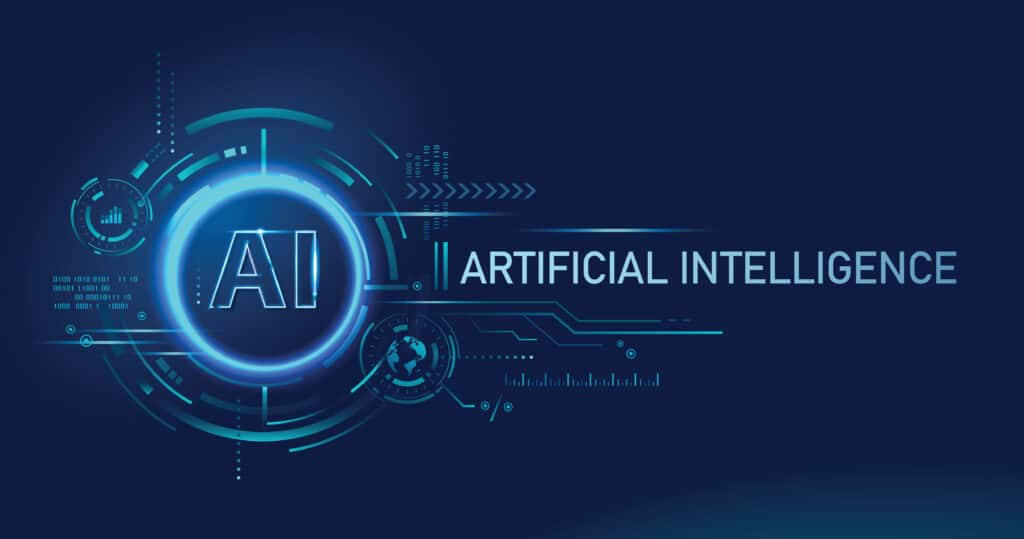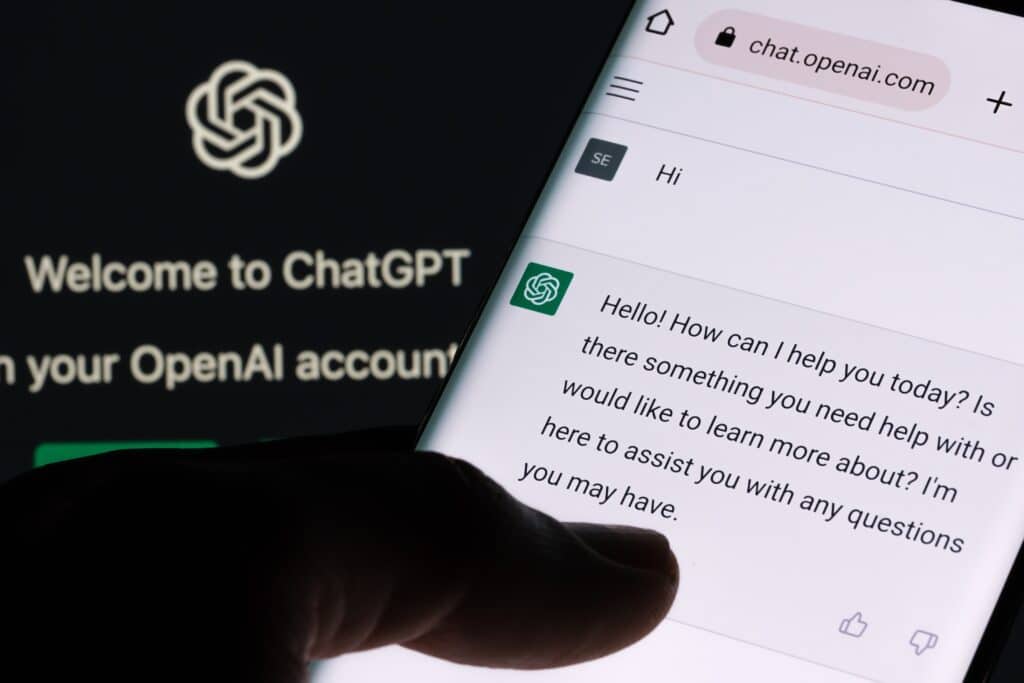ChatGPT… to Ban or Embrace? – Jennifer Oaten

Have you used artificial intelligence (AI) to help you perform a task?
In the past week, I have trialled the latest AI development ChatGPT to:
- Explain how the human heart works – it was amazing, accurate and detailed.
- Write a speech on excellence for our Opening Mass – very poor, not in our context and needed human connection.
- Improve a formula in excel – offered very good alternatives and the preferred one.
- Develop a lesson plan for teaching molecules – very thorough but not interactive. When requested to make this lesson more fun, it did precisely that!
- Write a letter to the local council re our upcoming build – factual and appropriate.
- Write a creative story about a farm fence – it was amazing!
- Create this blog on ChatGPT in schools – average, generalised, not helpful and very short.
AI is a powerful tool that can help make tasks easier, faster and more efficient. AI is used in many different areas, from healthcare to banking to shopping. For example, AI chatbots can provide assistance to customers or help businesses by automating mundane tasks such as data entry or data analysis. As technology continues to advance, the applications of AI will only continue to grow!
Educators are divided on the latest advances in AI technology, with some embracing it and some banning it. The Western Australian (WA) Department of Education has banned the technology onsite in government schools, as have several other states. Many independent schools are taking a different approach.
As a Principal responsible for educating our future workforce, I believe we need to ensure our students are knowledgeable about the positives and the challenges of AI platforms such as ChatGPT and the many others that are already accessible. The future will involve AI, and our students need to be informed.
One reason why we will not be banning ChatGPT at the College is that we can block the website on our school network, but this is difficult when students are offsite and have access via mobile phones.
The future of learning is an ongoing conversation at Santa Maria. While some staff are feeling apprehensive about this new wave of technology, others are eager to explore its potential and take on the challenges it presents.
Over the years, schools have adapted to technologies such as calculators, Wikipedia, Google, and YouTube; however, this level of advancement is like no other. This latest wave of technology offers a world of possibilities for our students – but only if it is used correctly.
As we continue to expand the possibilities of technology in education, our Academic Council has been hard at work formulating recommendations on how best to take advantage of this new resource. As we strive for excellence in our learning experience, it is essential that modern technology is used thoughtfully and responsibly. We must ensure that our students are given the opportunity to participate fully in their own learning process and to benefit from all the tools available. Stay tuned to see the exciting possibilities!

The Strengths of ChatGP
ChatGPT:
- Provides information from many different sources, amalgamates it and provides it in a logical way with opportunities for refining questions, so this is a time saver in gathering information. Students can use ChatGPT to research topics quickly and efficiently without manually searching through multiple sources of information.
- Can provide accurate answers to complex questions.
- Enables paragraphs to be copied in, and ChatGPT can be prompted to ‘improve the writing in this paragraph’. It provides suggestions for grammar and vocabulary.
- Enables generation of ideas on a topic assisting with brainstorming, enabling students to choose an idea as a launching pad for their task rather than wasting time deciding on an idea.
- Creates essays, creative or factual, letters and speeches, enabling students to be editors.
- Offers a platform for students, particularly shy students, to feel more confident asking questions without peers or teachers being aware, allowing them to seek help without feeling embarrassed.
- Provides a platform that can support students needing assistance if a teacher is unavailable. This can provide explanations to support students when there is a lack of or misunderstanding or the need to explain difficult concepts.
- Has the ability to provide feedback on inputted information, such as coding or mathematical solutions.
- Can adjust its response and the information provided as it learns more from interactions with the user.
The Challenges of ChatGPT
- There is no guarantee of the quality and reliability of the content it creates. Not everything we find online is accurate, and there will be errors.
- It can generate plagiarised content for assignments and tests, which could lead to academic dishonesty.
- It may lead to students not developing their literacy skills, such as writing stories or essays and students with poor skills may produce work that doesn’t reflect their true understanding of the subject matter.
- The power of human relationships is paramount for positive mental health, so online access may increase the isolation students may already feel as a result of current social media trends. This could become their go-to person for help rather than another student or teacher. Human interaction and socialisation may be impacted.
- Creativity may be discouraged as students may feel that they don’t need to come up with original ideas. It may also deter collaboration among students, as they may feel that they don’t need to work with others when AI can provide this information.
- AI-generated writing lacks warmth and the context and personality of the user. The generated responses do not have the users’ voice and may not seem authentic.
- While ChatGPT will provide basic feedback, it is simple, lacks depth and is currently no match for the feedback provided by a knowledgeable teacher.
Ways we can embrace AI
Currently, many courses have validations where students complete a task, and their understanding of the content and application of the content are tested in an in-class assessment. This model will become more necessary, but there are opportunities for our students to:
- Use AI to generate a framework of ideas or answers before writing their own.
- Make ethical decisions based on gathered information because AI won’t make ethical decisions for you based on morals, ethics and values.
- Review a piece of AI-generated information, creative writing or letter and provide an analysis of what is missing, what can be improved and examples of what could be included and why to improve the piece.
- Research and refine their thinking prior to class before participating in discussions, panels and debates. To carry on a conversation, most of the work comes from their own thinking. After a discussion, students can recap the discussion and share their reflections.
- Develop an understanding of how AI works and how it can be misused. This can include discussing the potential risks and consequences of using Al to cheat and the importance of honesty and integrity in academic work.
- Identifying what types of bias are evident in generated pieces.
- Establish the skillset needed to evaluate and check the validity of the information.
- Mark and score a generated AI piece against a rubric or marking key to determine how it would be assessed if it were their work.
- Explain how their personal interpretations either confirm or refute ideas.
We will need to rethink assessments and make adjustments to our assessment protocols because while there are some initial plagiarism detection platforms, these have a challenging task ahead. We need to ensure we provide the right environment for our students to develop and use critical thinking, problem-solving skills, and other attributes that are part of our Connecting Learning to Life strategy.
As technology advances and the role of AI becomes more pervasive in our day-to-day lives, we must confront a range of ethical questions about the use of artificial intelligence. We must ask ourselves: What sets us apart from machines? When is it appropriate to use AI, and when should it be avoided at all costs? How can we ensure that AI is used equitably and without bias? These difficult questions will continue to challenge us as we strive for a better future.
Big questions for educators and big questions for students!

The Power of Expectations in Shaping Student Success – Jennifer Oaten
Discover the transformative impact of expectations on student success. Learn how belief shapes outcomes in education and beyond.

Exploring the Artistic Universe of Isabelle de Kleine (2011)
From childhood, Isabelle de Kleine’s talent flourished, guided by the supportive Art department into the renowned artist she is today.

What A Term! So Many Opportunities – Jennifer Oaten
As I look back on the past nine weeks, I am so grateful for who we are as a community and what we have achieved. Through the dedication of our staff and the enthusiasm of our students, we have established new connections, immersed ourselves in opportunities and worked through challenges.
- Featured
Author: Santa Maria College
Santa Maria College is a vibrant girls school with a growing local presence and reputation. Our Mission is to educate young Mercy women who act with courage and compassion to enrich our world. Santa Maria College is located in Attadale in Western Australia, 16 km from the Perth CBD. We offer a Catholic education for girls in Years 5 – 12 and have 1300 students, including 152 boarders.






